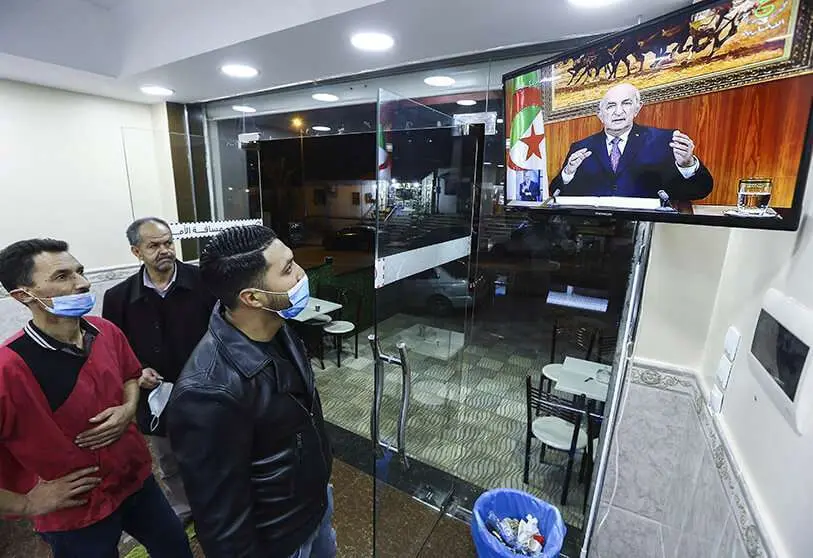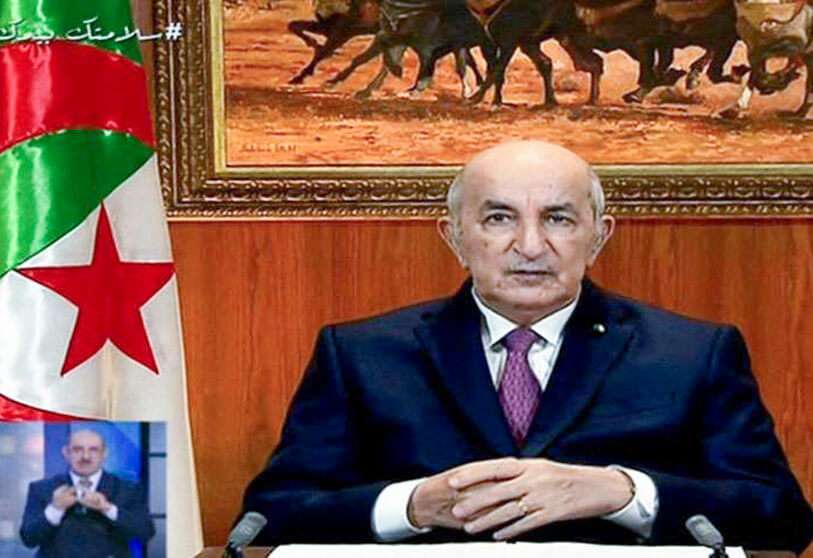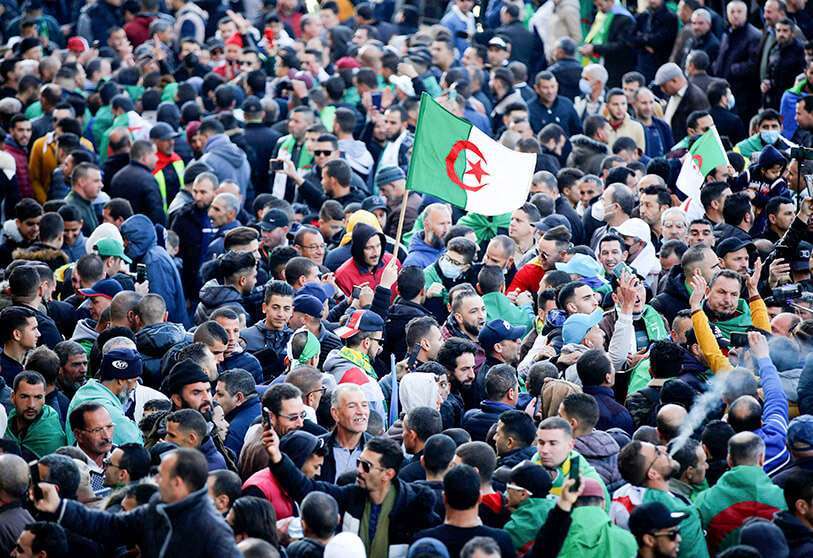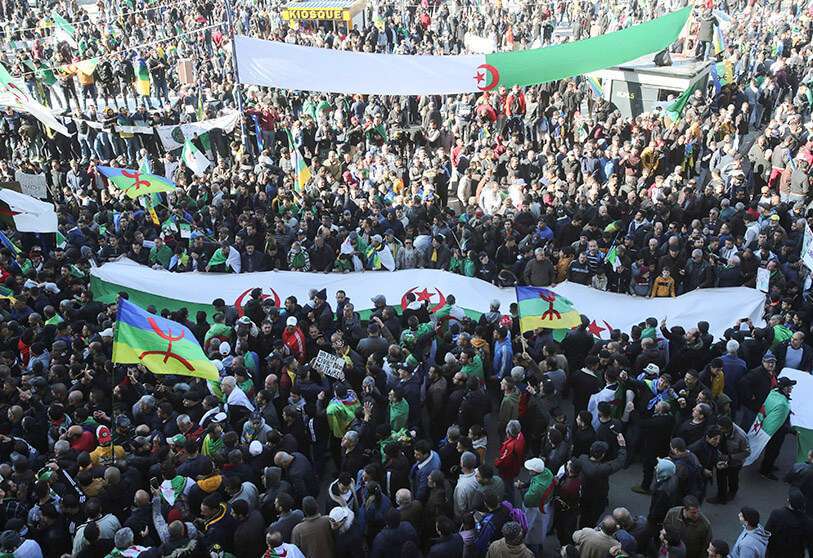Algerian president dissolves parliament and announces early parliamentary elections

"I have decided to dissolve the assembly and call elections to build a new institution". With these words, Algerian President Abdelmadjid Tebboune announced the dissolution of the lower house of parliament and the calling of early legislative elections in an address to the nation on state television.
Tebboune also announced a government reshuffle in the next 24 to 48 hours after replacing government ministers "who have fulfilled their responsibilities", without naming names. He also did not set an exact date for the new parliamentary elections, but they will be held next April.

The call for elections comes in the wake of a demonstration by thousands of people from the citizens' movement known as 'Hirak' calling for a renewal of the country's political system. "We are committed to meeting all the demands made by the Hirak," Tebboune said in his speech.
The president said the upcoming elections would "end the era of fraud", showing his determination to "put an end to any doubts about the elected institutions". In this context, he called on young people to stand for election and pledged, under the new constitution, to provide them with financial and moral support.
This is the second time in the country's history that parliament has been dissolved and early elections called since January 1992, following the resignation of former president Chadli Bendjedid. The announcement also comes just days before the second anniversary of the overthrow of Abdelaziz Bouteflika's government. The current legislators in the lower house had been elected for five years in May 2017, and Bouteflika's allies held an overwhelming majority.

Elected in December 2019, Tebboune pledged to take measures aimed at diversifying the economy to lessen dependence on oil and gas, which account for 60% of the state budget and 94% of total export revenues. Algerians have been waiting for the implementation of the economic and political reforms Tebboune promised after succeeding Bouteflika, who stepped down in 2019 following mass protests after two decades in power.
Tebboune, Bouteflika's former prime minister, was elected amid these protests, which demanded the departure of the entire ruling elite, with many of them boycotting the vote as unfair and non-transparent.
The country, an OPEC member from North Africa, has been under severe financial pressure due to a drastic drop in energy revenues, which has forced the government to cut spending and delay some planned investment projects.
The Algerian president returned home in early February from Germany, where he underwent foot surgery for complications following a coronavirus infection. During his absence, the country has seen many protests.

"We are committed to meeting all the demands raised by the 'Hirak'," Tebboune said in the speech. The President also announced that he had signed a decree to release 60 imprisoned activists linked to the group. Among them, he said, there were 30 who had already been sentenced.
"The young people must be integrated into political institutions, and we must help them, and we will help them by taking charge of a large part of the election campaign," the president added. Hundreds of protesters took to the streets on Tuesday in the eastern city of Kherrata, the first protests since the government banned marches in March last year as part of measures to limit the spread of the coronavirus.
The need for a generational change at the helm of the country has been one of the reasons behind the protests, first against Bouteflika and now with Tebboune. Bouteflika's attempt to run for a fifth time in the elections, when he had been unable to govern since 2013 due to a stroke, was the trigger for the waves of citizen protests that ousted him.
However, Tebboune, his successor, was not only prime minister under Bouteflika, but is 75 years old and like him has had to leave the country on several occasions due to health problems, most recently related to the coronavirus, after two months in hospital in Germany, and a foot operation from which he returned to the country less than a week ago.
The elections in which Tebboune was elected were criticised by the opposition and a large part of the population showed their discontent in the constitutional referendum at the end of last year, in which only 23.7% of Algerians voted.









